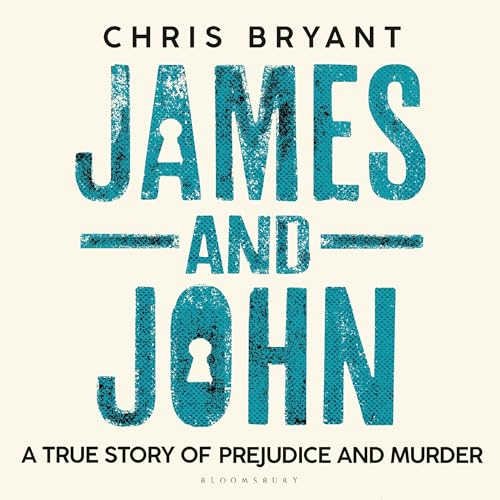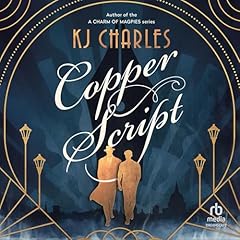
James and John
A True Story of Prejudice and Murder
Artikel konnten nicht hinzugefügt werden
Der Titel konnte nicht zum Warenkorb hinzugefügt werden.
Der Titel konnte nicht zum Merkzettel hinzugefügt werden.
„Von Wunschzettel entfernen“ fehlgeschlagen.
„Podcast folgen“ fehlgeschlagen
„Podcast nicht mehr folgen“ fehlgeschlagen
Nur 0,99 € pro Monat für die ersten 3 Monate
 Bist du Amazon Prime-Mitglied?
Bist du Amazon Prime-Mitglied?Audible 60 Tage kostenlos testen
Für 15,95 € kaufen
-
Gesprochen von:
-
Chris Bryant
-
Von:
-
Chris Bryant
Über diesen Titel
Bloomsbury presents James and John written and read by Chris Bryant.
*A BBC Radio 4 Book of the Week*
‘Carefully observed, rich in detail, imaginative, compassionate and angry. A raw, unexpected portrait of Britain’s grandeur, wealth, energy, cruelty and hypocrisy in the age of liberalism’ RORY STEWART
'A shocking story of prejudice and injustice, told in meticulous detail' KEIR STARMER
From award-winning historian and Sunday Times bestselling author Chris Bryant MP, James and John tells the story of what it meant to be gay in early 19th-century Britain through the lens of a landmark trial.
They had nothing to expect from the mercy of the crown; their doom was sealed; no plea could be urged in extenuation of their crime, and they well knew that for them there was no hope in this world.
When Charles Dickens wrote these tragic lines he was penning fact, not fiction. He had visited the condemned cells at the infamous prison at Newgate, where seventeen men who had been sentenced to death were awaiting news of their pleas for mercy. Two men stood out: James Pratt and John Smith, who had been convicted of homosexuality. Theirs was ‘an unnatural offence’, a crime so unmentionable it was never named. That was why they alone despaired and, as the turnkey told Dickens, why they alone were ‘dead men’.
The 1830s ushered in great change in Britain. In a few short years the government swept away slavery, rotten boroughs, child labour, bribery and corruption in elections, the ban on trades unions and civil marriage. They also curtailed the ‘bloody code’ that treated 200 petty crimes as capital offences. Some thought the death penalty itself was wrong. There had not been a hanging at Newgate for two years; hundreds were reprieved. Yet when the King met with his ‘hanging’ Cabinet, they decided to reprieve all bar James and John. When the two men were led to the gallows, the crowd hissed and shouted.
In this masterful work of history, Chris Bryant delves deep into the public archives, scouring poor law records, workhouse registers, prisoner calendars and private correspondence to recreate the lives of two men whose names are known to history – but whose story has been lost, until now.










